


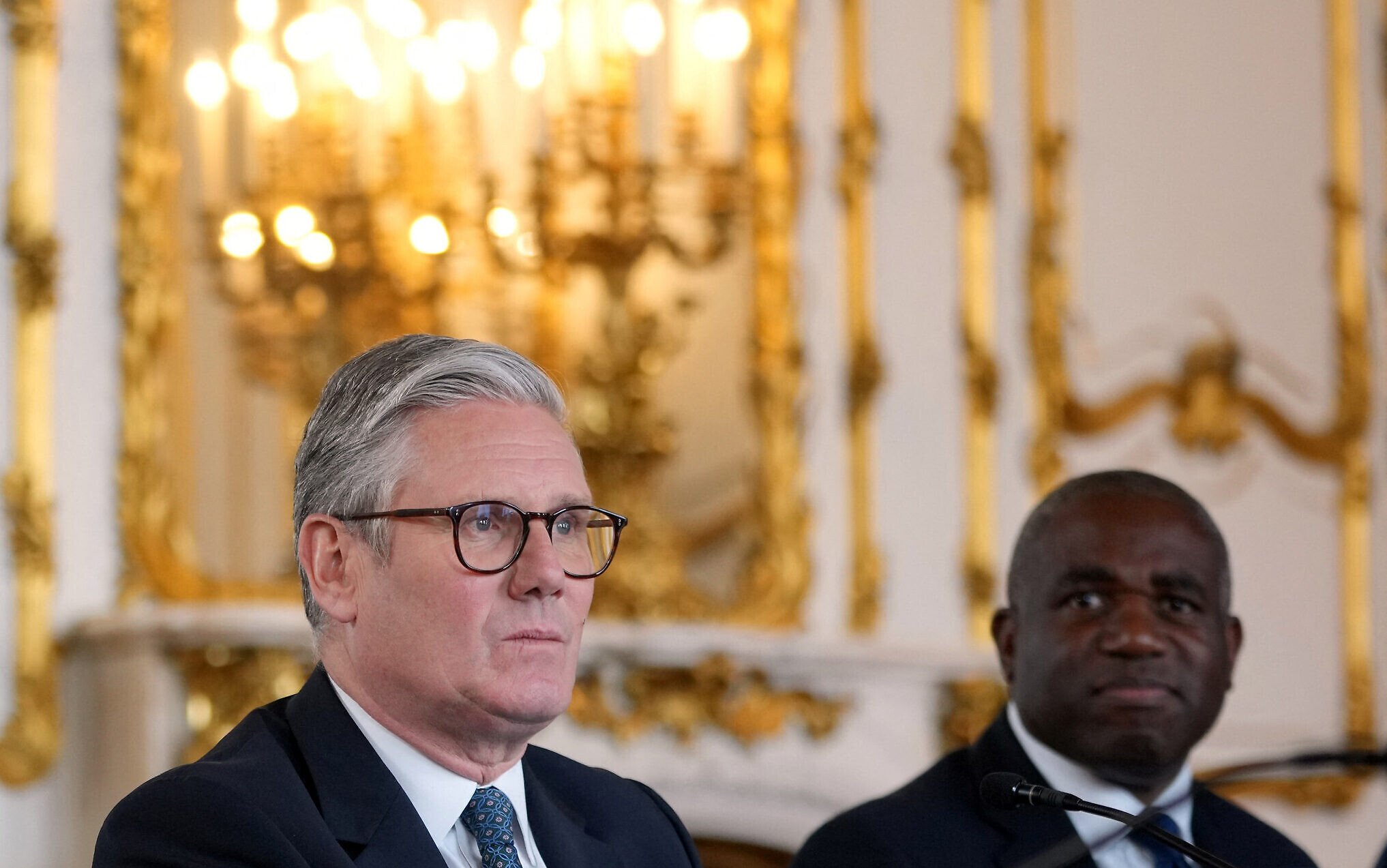
British Foreign Secretary David Lammy announced Tuesday that the United Kingdom is suspending free trade agreement negotiations with Israel and taking other punitive measures, including the imposition of sanctions on West Bank settlers, in response to Israel’s wartime policies during its conflict with Hamas in Gaza.
The announcement followed comments by British Prime Minister Keir Starmer earlier on Tuesday, saying he was “horrified” by Israel’s expanded ground campaign in Gaza.
“While the UK government remains committed to the existing trade agreement in force, it is not possible to advance discussions on a new, upgraded FTA with a Netanyahu government that is pursuing egregious policies in the West Bank and Gaza,” the British government wrote in a statement.
Speaking to parliament, Lammy accused Prime Minister Benjamin Netanyahu of “planning to drive Gazans from their homes into a corner of the Strip to the south and permit them a fraction of the aid that they need.”
“Blocking aid, expanding the war, dismissing the concerns of your friends and partners — this is indefensible and it must stop,” he told the British parliament.
“The Israeli government has a responsibility to intervene and halt these aggressive actions,” Lammy said. “Their consistent failure to act is putting Palestinian communities and the two-state solution in peril.”
He said Britain would be “reviewing cooperation” with Israel under its so-called 2030 roadmap for UK-Israel relations.
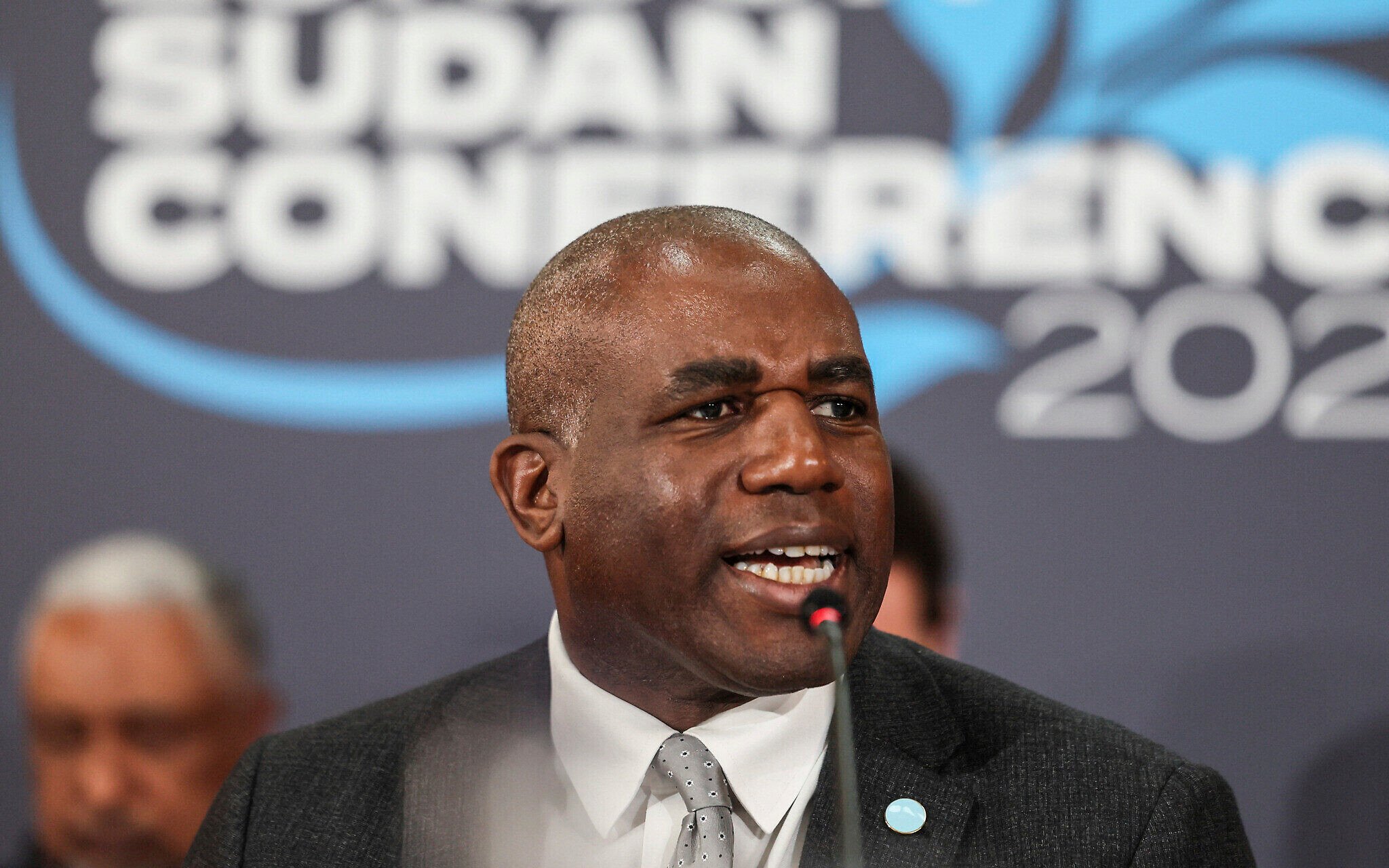
Middle East Minister Hamish Falconer also summoned Israel’s Ambassador to the UK Tzipi Hotovely to the Foreign, Commonwealth and Development Office in response to “the wholly disproportionate” expansion of military activity in Gaza.
In a statement, the Foreign Ministry in Jerusalem retorted: “The British Mandate ended exactly 77 years ago. External pressure will not divert Israel from its path in the struggle for its existence and security against enemies seeking its destruction.”
“Even before today’s announcement, the matter had not been advanced at all by the current British government,” said the ministry, adding that the trade agreement “is mutually beneficial” and if, “due to anti-Israel obsession and domestic political considerations, the British government is willing to harm the British economy — that is its decision.”
The UK’s moves come amid mounting international outrage leveled at Israel over its conduct during its war against Hamas in the Gaza Strip, which has skyrocketed due to an aid blockade and following the IDF’s initiation over the weekend of an expanded ground invasion.
Israel began blocking aid from entering Gaza on March 1, arguing that sufficient humanitarian assistance entered the Strip during a six-week ceasefire earlier this year and that Hamas has been stealing much of that aid to replenish terrorist group members. Israel also said the blockade was necessary to pressure the terror group to release the dozens of remaining Israeli hostages it has been holding for over 590 days.
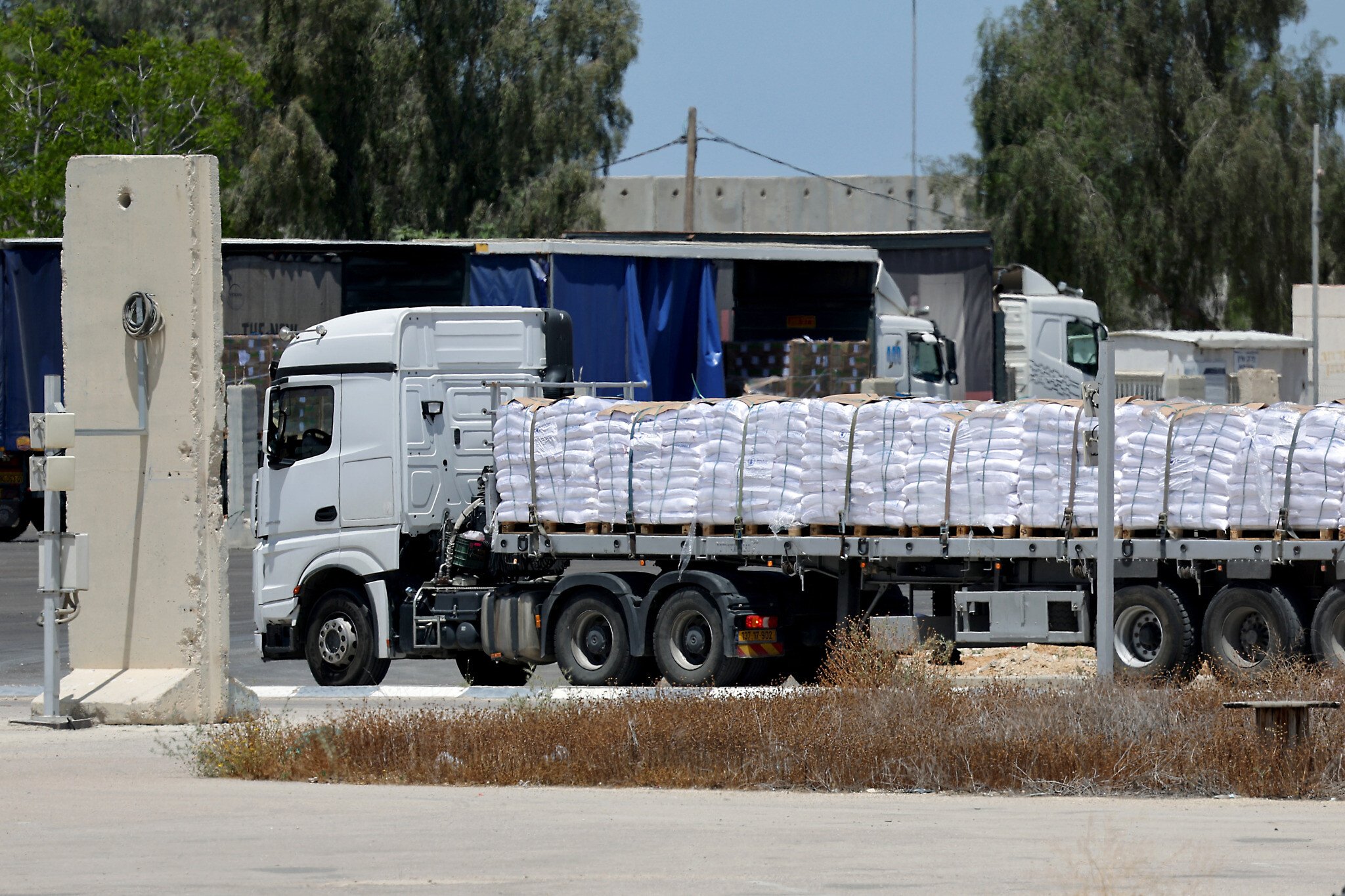
On Monday, the government authorized the entry of five trucks into Gaza, under widespread pressure, including from the United States, to alleviate the worsening hunger crisis in the Strip and after some IDF officials warned the political leadership that Gaza was on the brink of starvation.
Late Monday evening, the UK’s Starmer, French President Emmanuel Macron and Canadian Prime Minister Mark Carney threatened in a joint statement to take “concrete actions” against Israel if it refuses to halt its military campaign and address the need for aid, saying the minimal supplies Israel permitted on Sunday were “wholly inadequate.”
A day later, Israel permitted some 100 aid trucks to enter the territory, but continues to strongly reject pausing its military pressure campaign unless Hamas lays down its arms and releases all the hostages.
The UK and Israel began negotiations for a comprehensive free trade agreement to bolster bilateral trade in July 2022, working off a 2019 UK-Israel trade continuity agreement. In July 2024, the UK’s new Labour government announced its intention to resume FTA talks with Israel, making it one of the six FTAs the UK government committed to restart.
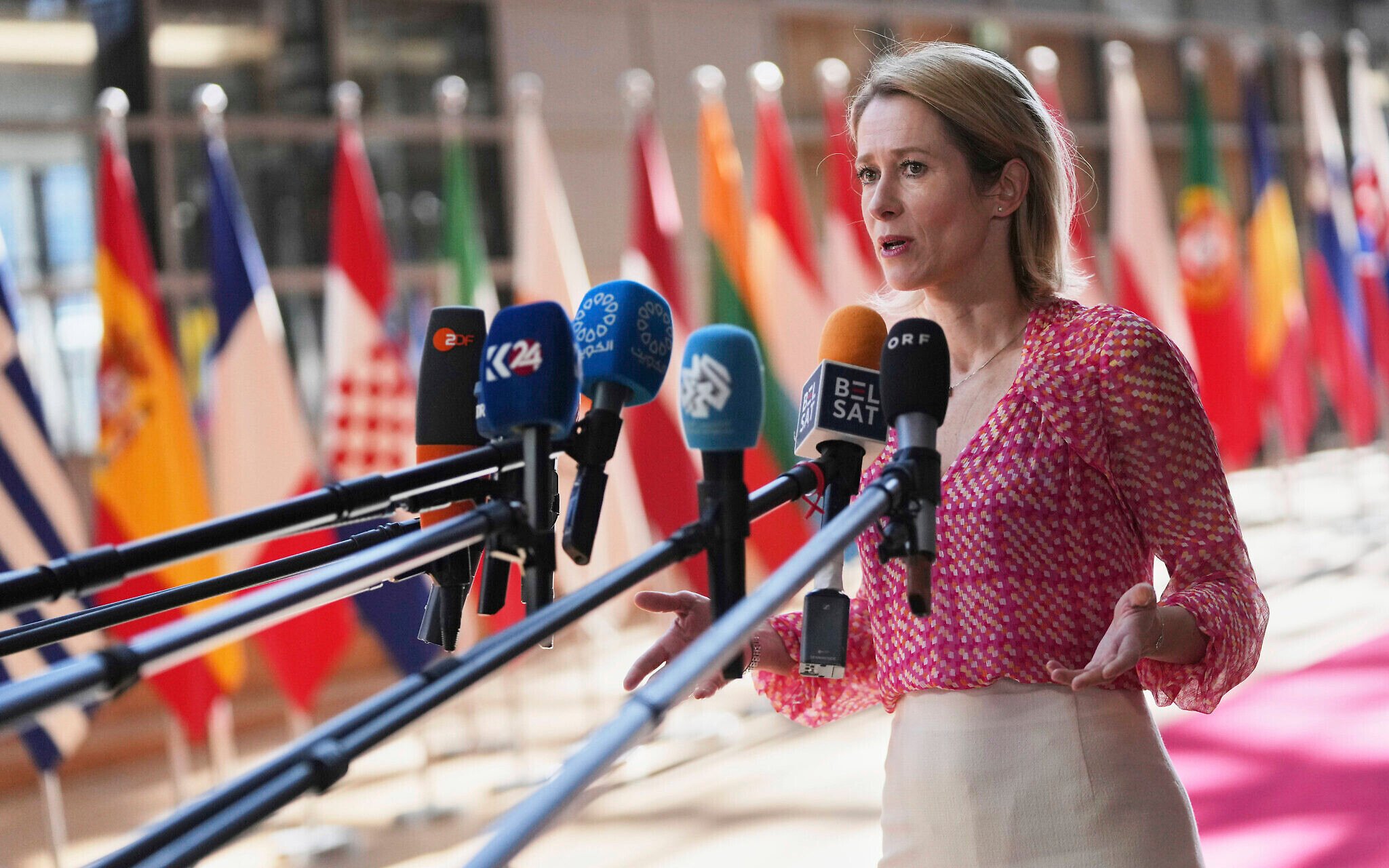
Israel sees the UK as its fourth-largest provider of foreign direct investment, with $1.13 billion invested in 2023, according to data shared by the British Embassy in Israel in March.
In another potential economic blow, Israel’s top trading partner — the European Union — agreed on Tuesday to review its cooperation deal with Jerusalem over alleged human rights abuses in Gaza, said the bloc’s top diplomat, Kaja Kallas.
Kallas said Brussels was acting after “a strong majority” of its 27 member states backed the move in a meeting of EU foreign ministers, during which the Foreign Affairs Council was set to review the EU-Israel Association Agreement, which governs the ties between Israel and the European body.
“What it tells is that the countries see that the situation in Gaza is untenable, and what we want is to really help the people, and what we want is to unblock the humanitarian aid so that it will reach the people,” Kallas told journalists after the meeting.
Foreign Minister Gideon Sa’ar said at a Jerusalem conference Tuesday morning that he had been holding talks with his EU counterparts to avoid the potential break in ties.
French Foreign Minister Jean-Noel Barrot said Tuesday morning regarding the possibility of suspending the pact that “the Netherlands suggested a reexamination of the EU-Israel Association Agreement. We supported this initiative and I call on the EU representatives to examine it, to address this requirement, and to determine if Israel is fulfilling its human rights obligations or not.”
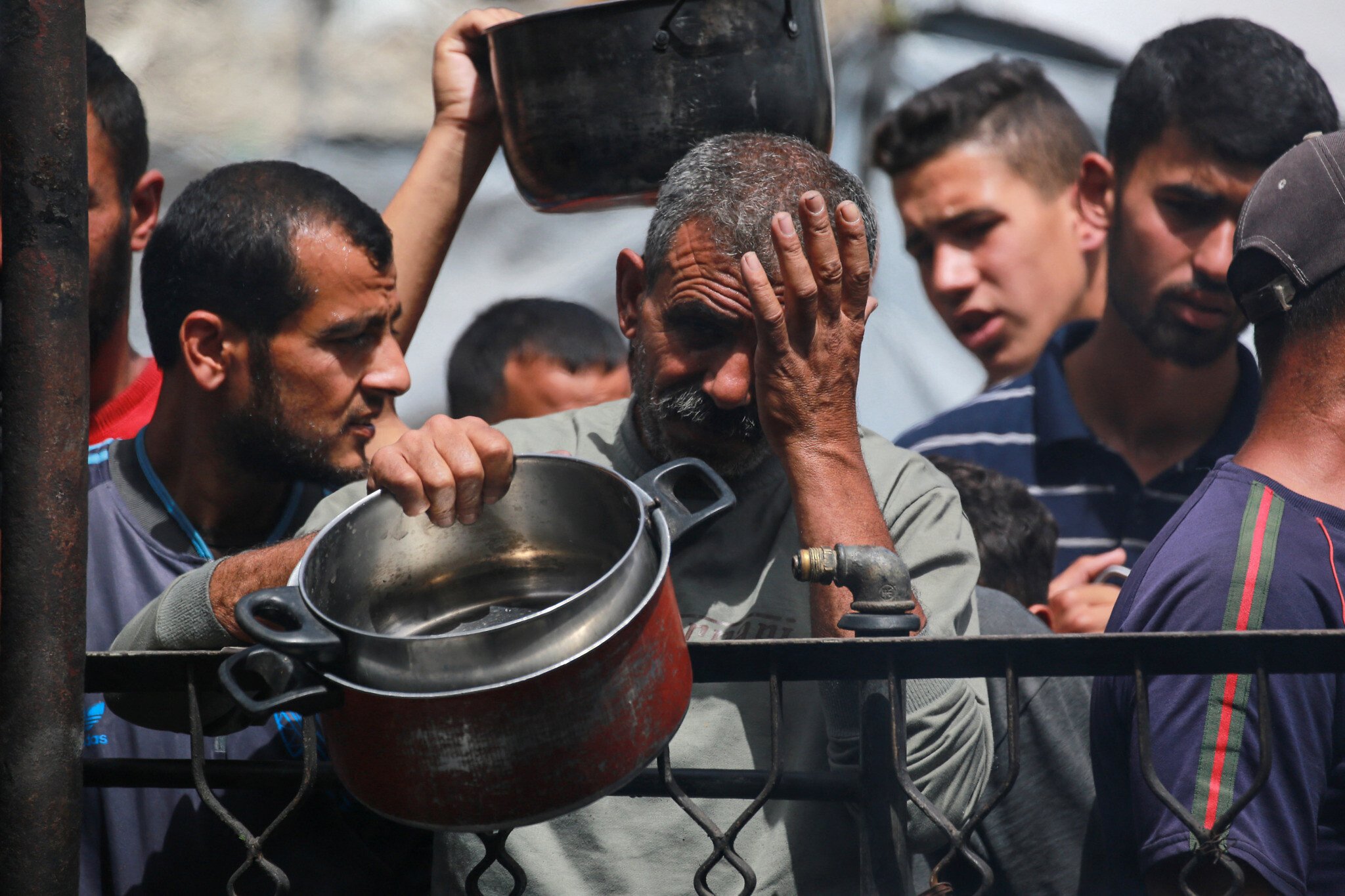
In response to Israel’s conduct in Gaza, Dutch Foreign Minister Caspar Veldkamp has led an initiative demanding a review of the pact, which dictates that cooperation between the EU and Israel “shall be based on respect for human rights and democratic principles.”
“The situation is unbearable because the blind violence and the blocking of humanitarian aid by the Israeli government have turned Gaza into a dying ground — if not a cemetery,” Barrot told France Inter radio, calling Israel’s military campaign “a total violation of all rules of international law, and contrary to the security of Israel — to which France is committed — because those who sow violence reap violence.”
Sharon Wrobel and agencies contributed to this report.
